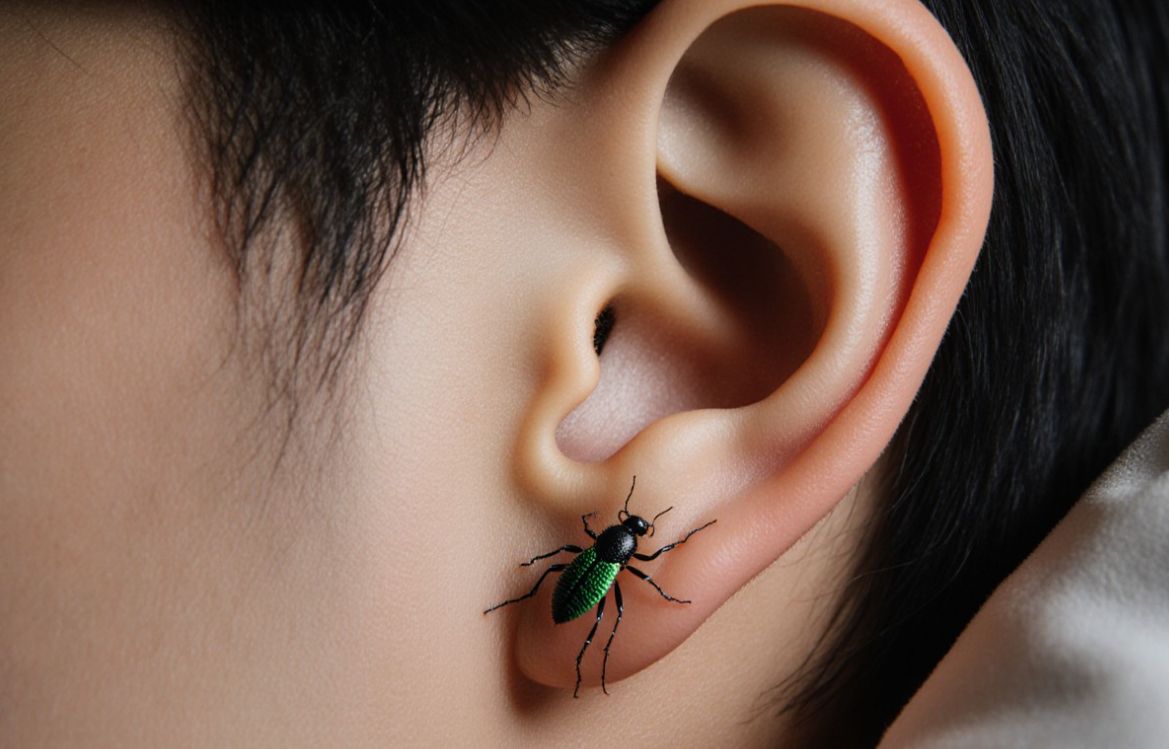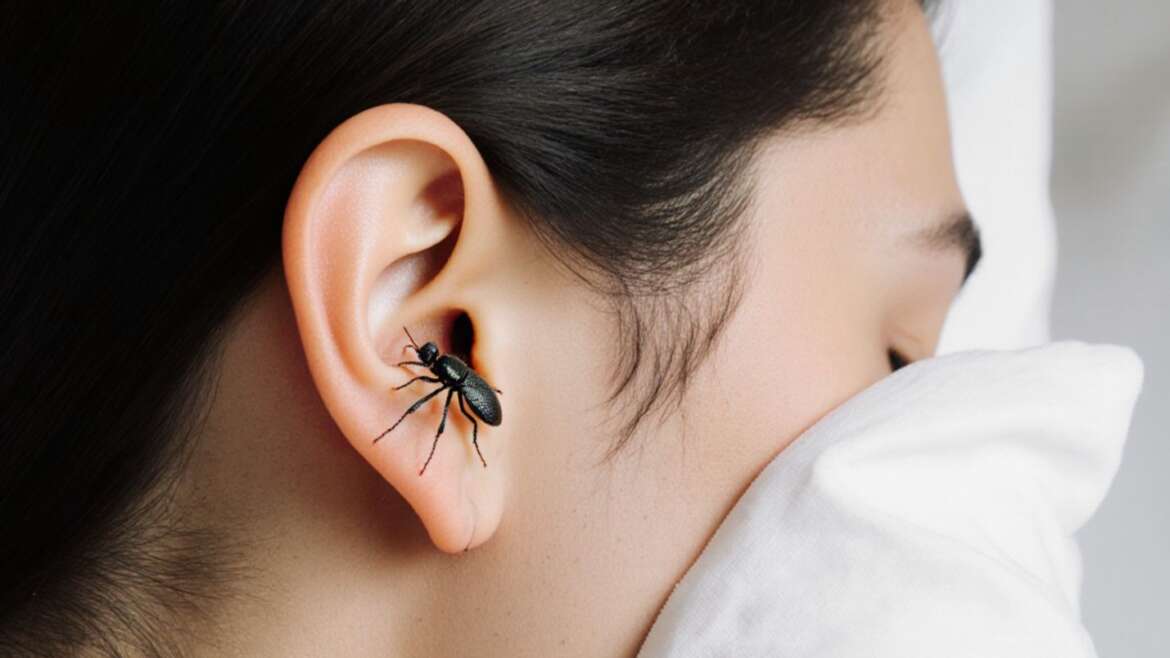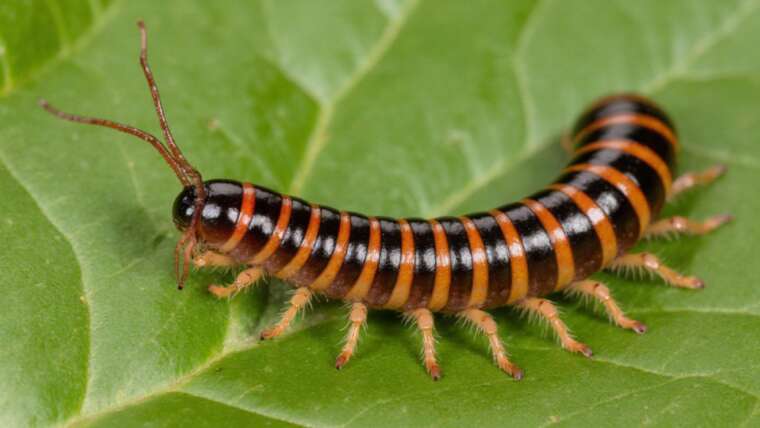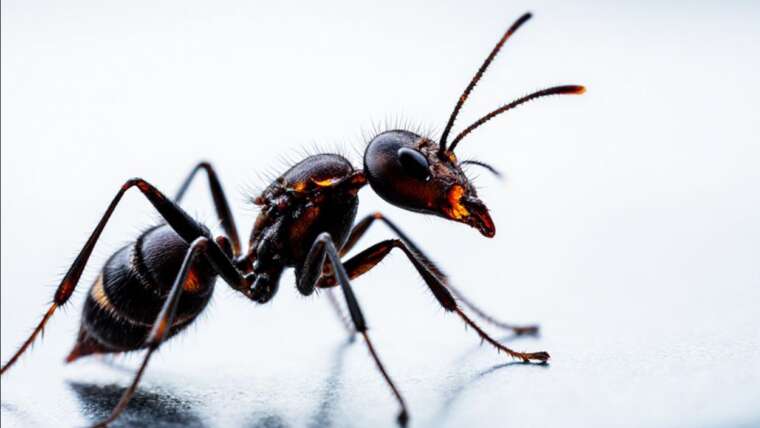The notion of bugs or spiders crawling into people’s ears while they sleep often circulates in the form of horror stories. These tales typically lack scientific backing and are usually dismissed as urban legends or old wives’ tales. However, emergency room doctors might hold a different perspective, having seen firsthand the consequences of such nocturnal invasions.
In reality, the phenomenon of insects invading human orifices, particularly the ears, is more common than one might think. One recent case involved a woman who visited the ER to have a sizable cockroach removed from her inner ear. The ENT specialist who treated her mentioned that incidents like this occur with surprising regularity; in fact, he reported that these cases appear in emergency rooms at least once a month. On the day she came in, she was not the only patient with bug-related issues, being the second such case that particular day.
Tip: To reduce the likelihood of bugs making their way into your ears, consider sleeping with ear plugs or a sleep mask, as these can deter insects from crawling near your face while you sleep.

What Insect is Most Likely to Enter Your Ears?
Contrary to what many might believe, it’s not uncommon for people to find bugs in their ears. Dr. Benjamin McGrew, an associate professor in the Department of Otolaryngology at the University of Alabama, notes that patients seek treatment for insect invasions in their ears at least four to five times each year. The most notorious culprits are cockroaches.
Cockroaches often become lodged deep within the ear canal, unable to escape without medical assistance. They can be particularly troubling, as frantic movement inside the ear can cause damage to the eardrum. However, cockroaches are not the only insects causing alarm. Dr. McGrew recounted a particularly unusual case in which a spider web was discovered deep within a man’s ear canal. Various types of flying insects, such as moths and other critters, have also found themselves trapped inside human ear canals.
Tip: If you live in a region prone to cockroach infestations, consider placing insect traps near common entry points to minimize the likelihood of these pests invading your personal space.
Why Do Bugs Crawl Into People’s Ears?
You might wonder what prompts bugs, like cockroaches or spiders, to crawl into your ears in the first place. Many insects, including cockroaches, tend to venture out at night, coinciding with the times most people are asleep. The stillness of your body, combined with the warmth and humidity of your ear, can make it a tempting hideaway for these bugs.
Specifically, cockroaches are attracted to various chemicals, including volatile fatty acids and certain odors that emanate from fermented foods. Notably, earwax contains compounds that can attract these pests, turning your ears into an unintended welcome mat.
Tip: Maintain a clean sleeping environment and avoid consuming overly fragrant foods before bedtime to reduce the concentration of bug-attracting odors lingering around you at night.
How Common is it for a Bug to Crawl Into Your Ear?
Although specific statistics on how often bugs invade ears are difficult to ascertain—due to variances in reporting and tracking—this issue does occur frequently. Certain demographics are at a heightened risk. The elderly, individuals with disabilities, and small children are particularly prone to this problem, as it can go unnoticed for longer periods within these groups.
Additional factors include personal living conditions, hygiene practices, and surrounding environments. For instance, a cluttered or unkempt home can serve as a sanctuary for insects, increasing chances of encounters.
Tip: Consider conducting regular checks of less-frequented areas in your home, such as attics and basements, to ensure there’s no buildup of pests, which can ultimately lead to more serious issues.
What Should You Do If a Bug Has Entered Your Ear Canal?
If you suspect that a bug has made its way into your ear, should you attempt to remove it yourself or seek professional medical help? The expert recommendation is to seek medical intervention promptly. Attempting to self-remove may cause further injury to your ear. Regardless of whether you seek immediate medical help, collaborating with a pest control company to prevent future infestations is essential.
Terminix offers pest control services across the United States, providing experienced technicians who can efficiently handle infestations of cockroaches, spiders, flying insects, and more in your home. Don’t hesitate—contact us today to find your local pest control branch!
Tip: Familiarize yourself with signs of pest infestations, such as droppings or unusual noises at night, to catch potential issues early and prevent them from escalating into ear-related emergencies.





